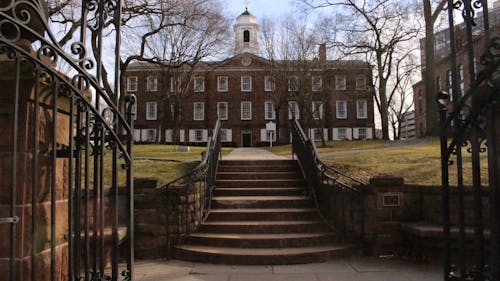Rutgers to implement new core curriculum for Fall 2019

The incoming first-year class of the Fall 2019 semester will see a new core curriculum that includes new requirements and rules designed to make scheduling and fulfilling the core easier.
The new curriculum, which will not affect students currently enrolled, will make several changes to the rules and requirements of the current Rutgers—New Brunswick core curriculum. The administration hopes the changes will improve student scheduling and provide a more well-rounded education.
"The process of changing the core curriculum began several years ago after faculty from the School of Arts and Sciences passed a resolution for a temporary committee to review the core curriculum," said Carolyn Moehling, the associate dean for Undergraduate Education.The committee involved various parties on campus including students and academic advisors.
The resolution was then acted upon by the Core Requirements Committee (CRC), which is composed of faculty from all the schools that follow the curriculum, including the School of Arts and Sciences, School of Environmental and Biological Sciences, School of Management and Labor Relations, School of Communication and Information, Mason Gross School of the Arts and Edward J. Bloustein School of Planning and Public Policy. A new core curriculum was drawn up and approved in May 2017, first for faculty and then for students in 2018.
“The goal of these changes was to make the core better serve our students, to meet the learning goals that the faculty believe are important and to recognize the challenge students face in putting their schedules together,” Moehling said.
The approved proposal to change the curriculum, which The Daily Targum received a copy of, highlighted one of the most significant changes to the core, which is in the Contemporary Challenges Learning Goals. This requirement will be subdivided into two new requirements: “Diversity and Social Inequality” and “Our Common Future.” Classes that fulfill the Diversity and Social Inequality requirement will analyze contemporary social justice issues and unbalanced social power systems. Classes that fulfill the Our Common Future requirement will analyze the relationship that science and technology have to a contemporary social issue.
Moehling said this particular change was pushed by student groups such as the Rutgers University Student Assembly (RUSA) and the Coalition for Cultural Competency (CCC), both of which advocated for the core to better reflect the role of diversity and technology in society.
Other changes outlined in the approved proposal included eliminating the Information Technology and Research requirement, as the requirement overlapped with the Discipline-Based Writing and Communication requirement. The new core will aim to make fulfilling the core easier for students by ensuring that all classes which complete the core requirements will be offered at least every other year on a regular schedule.
The new core will also include a rule that a single course can only fulfill up to two core requirements. This was done due to the fact that faculty noticed students scrambling to get certain courses on their schedule that could fulfill multiple requirements. The new rule will better equalize the value of each core class.
Moehling said the new core did not receive significant opposition, although there were concerns about the costly nature of changing a program as massive as the Rutgers—New Brunswick Core Curriculum.
“We’re optimistic about the changes,” said Moehling. “We understand there might be some confusion, but we’re working to minimize that. We’re confident this is a move in the right direction.”



